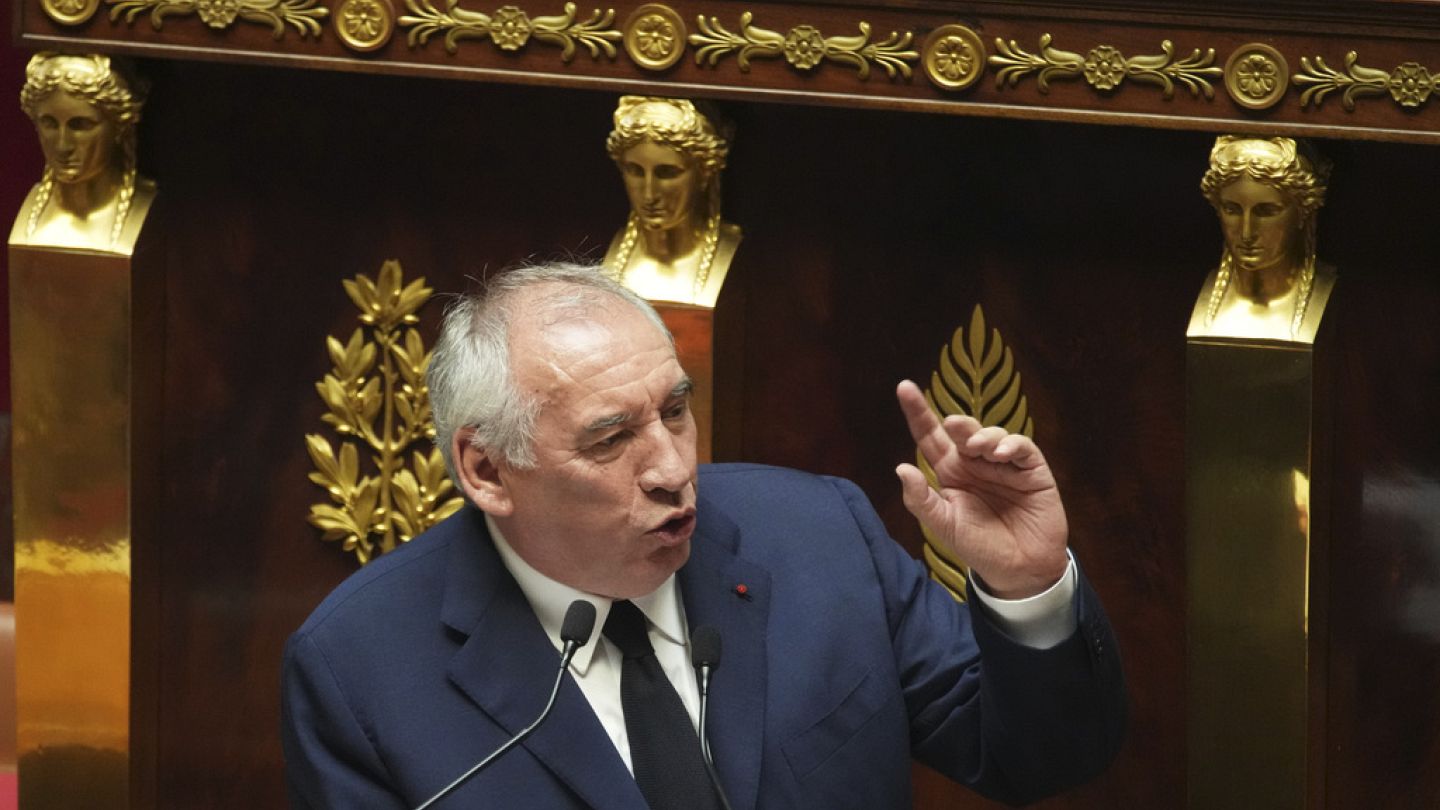
France is bracing for fresh political turmoil on Monday as Prime Minister François Bayrou and his minority government face a likely defeat in a high-stakes confidence vote in the country’s lower house.
Bayrou, appointed to the post less than a year ago after conservative politician and former Brexit negotiator Michel Barnier was ousted, told MPs that he deliberately called the vote, framing it as a test of political courage.
“I wanted this meeting and some of you — probably the most numerous, the most sensible — thought it was unreasonable, too risky,” he said during his opening remarks this Monday.
“I think the exact opposite. The greatest risk was not to take one, to let things continue without anything changing,” Bayrou added.
France faces a fiscal crisis
At the heart of the showdown are France’s fragile public finances. Last year’s deficit reached 5.8% of GDP, nearly double the EU ceiling of 3%, while national debt now stands at more than €3.3 trillion — roughly 114% of economic output.
Bayrou has argued that drastic cuts are unavoidable, putting forward a plan to slash €44 billion in spending by 2026, partly by scrapping two public holidays.
“Our vital prognosis is at stake. France has not had a balanced budget in 51 years,” Bayrou warned during his opening speech, pointing to what he called “the incredible succession of blows of fate since 2020,” from the pandemic and the war in Ukraine to soaring energy prices and inflation.
But opposition parties have hit out against the unpopular austerity measures.
“I want to tell you how happy I am that the government will fall today. For many French citizens, it’s a relief,” said Manuel Bompard of the hard-left France Unbowed party, echoing a chorus of voices from across the political spectrum.
What’s next for Macron?
Should Bayrou’s government fall in the next few hours, French President Emmanuel Macron would be forced to hunt for the fifth prime minister since Macron’s second term began in 2022 — one that would be able to shepherd a budget through France’s fragmented parliament.
The president is paying the price for his gamble to dissolve the National Assembly in June 2024, a move that backfired, creating a deeply divided parliament with no party holding a majority.
Many observers expect that Macron may now turn to the centre-left Socialist Party for the next head of the French government.
Such a choice could ease tensions but would face resistance from parts of Macron’s own alliance and the conservative The Republicans (Les Républicains or LR).
While LR lawmaker Laurent Wauquiez suggested his party would not necessarily oppose a Socialist premier, Interior Minister Bruno Retailleau was categorical: “There is no way we will accept a socialist prime minister.”
Macron has ruled out dissolving parliament again, wary of repeating last year’s disastrous gamble.
Although there have been multiple calls from MPs for Macron to resign if Bayrou were to fall, the French leader vowed to stay in office until the end of his term in 2027.
Mass protests expected in the next few days
Beyond the corridors of the country’s institutions, public patience is wearing thin.
Several grassroots groups have called for nationwide strikes on Wednesday, while France’s main trade unions are preparing strikes and protests on 18 September against the looming budget cuts.
France is risking entering a double crisis: political paralysis at the top and mounting unrest in the streets.
The results of the confidence vote are expected around 7 pm CEST.